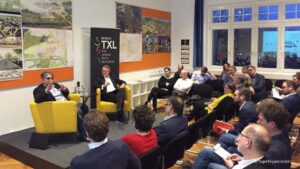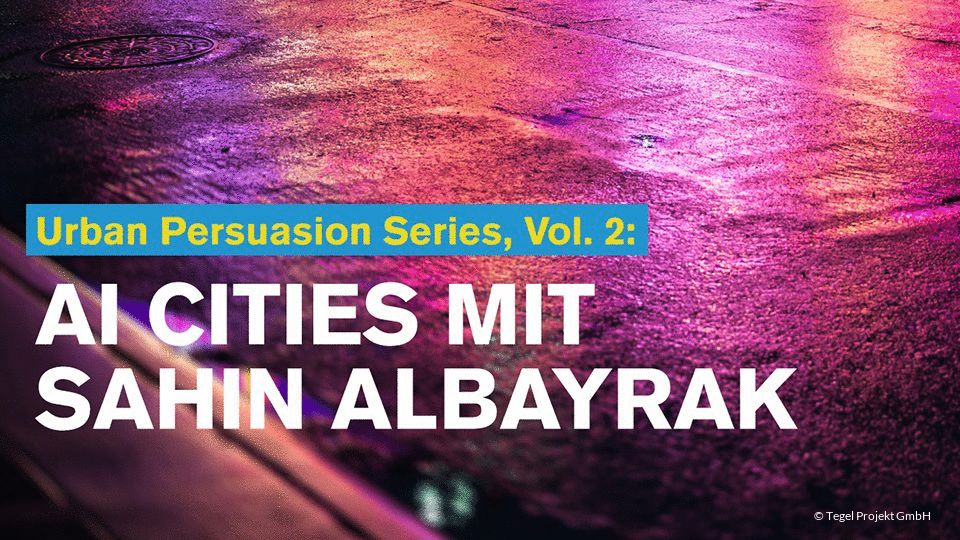How artificial intelligence can improve the lives of people in cities was discussed by the participants in the “Urban Persuasion” discussion series on 20 March 2019.
Berlin is booming. Like so many urban spaces around the world. But cities can only grow sustainably with technological support. Some of the most creative workshops for networked technologies have been Prof. Dr. Dr. hc. Sahin Albayrak built up – in Berlin. As a founding member of T-Lab, where Deutsche Telekom develops its innovations. Or as head of the DAI Laboratory for Distributed Artificial Intelligence at the Technical University of Berlin. “You whirl around in all kinds of fields and your commitment to research has become legendary,” said Dr Philipp Bouteiller, Managing Director of Tegel Projekt GmbH, as he introduced Professor Sahin Albayrak to the participants of the second edition of “Urban Persuasion”.
Internet of Things is already a reality
Around 40 visitors came to the round table on urban transformation in the rooms of Tegel Projekt GmbH to discuss Berlin as an urban real laboratory for networked technologies. For Sahin Albayrak, the Internet of Things is not a vision of the future, but already a reality. At Ernst-Reuter-Platz in Berlin, the DAI lab has digitised an entire flat. For example, the scientist plans to present an intelligent oven at the CES tech festival in Las Vegas, which suggests and autonomously prepares suitable recipes depending on the contents of the fridge and the wishes of the residents. Albayrak is convinced: “Everything can behave intelligently.”

The scientist consistently follows this principle in autonomous driving. Sahin Albayrak equipped the busy street of 17 June with sensors. A short film of a test drive demonstrated to the visitors of “Urban Persuasion” how fast parallel or preceding cars can restrict the view for autonomous vehicles. Albayrak: “We were the first to put forward the thesis: It is good if a car is intelligent. But it is better if the environment is also intelligent!” Tegel Projekt GmbH would also like to use the pioneering work of the Berlin AI expert on autonomous driving for the Urban Tech Republic. “Our plan is for the test track to be extended to Tegel,” Philipp Bouteiller revealed.
In a subsequent question and answer session, the participants had a controversial discussion about the social environment for networked technologies and the data generated from them. For example, who will operate the middleware through which systems from different manufacturers can communicate with each other, asked one visitor. Albayrak emphasised that the data from the test track for autonomous driving belonged to the city. However, the DAI lab is already developing an open data platform to make the data available to companies as well.
Philipp Bouteiller underlined the importance of common standards for the development of networked technologies: “We now need a platform for IoT so that we can finally move forward.” And with a view to the representatives of renowned technology companies present, Bouteiller added as a transition to the subsequent get-together: “I wouldn’t be surprised if many of us are already working on this platform.”
